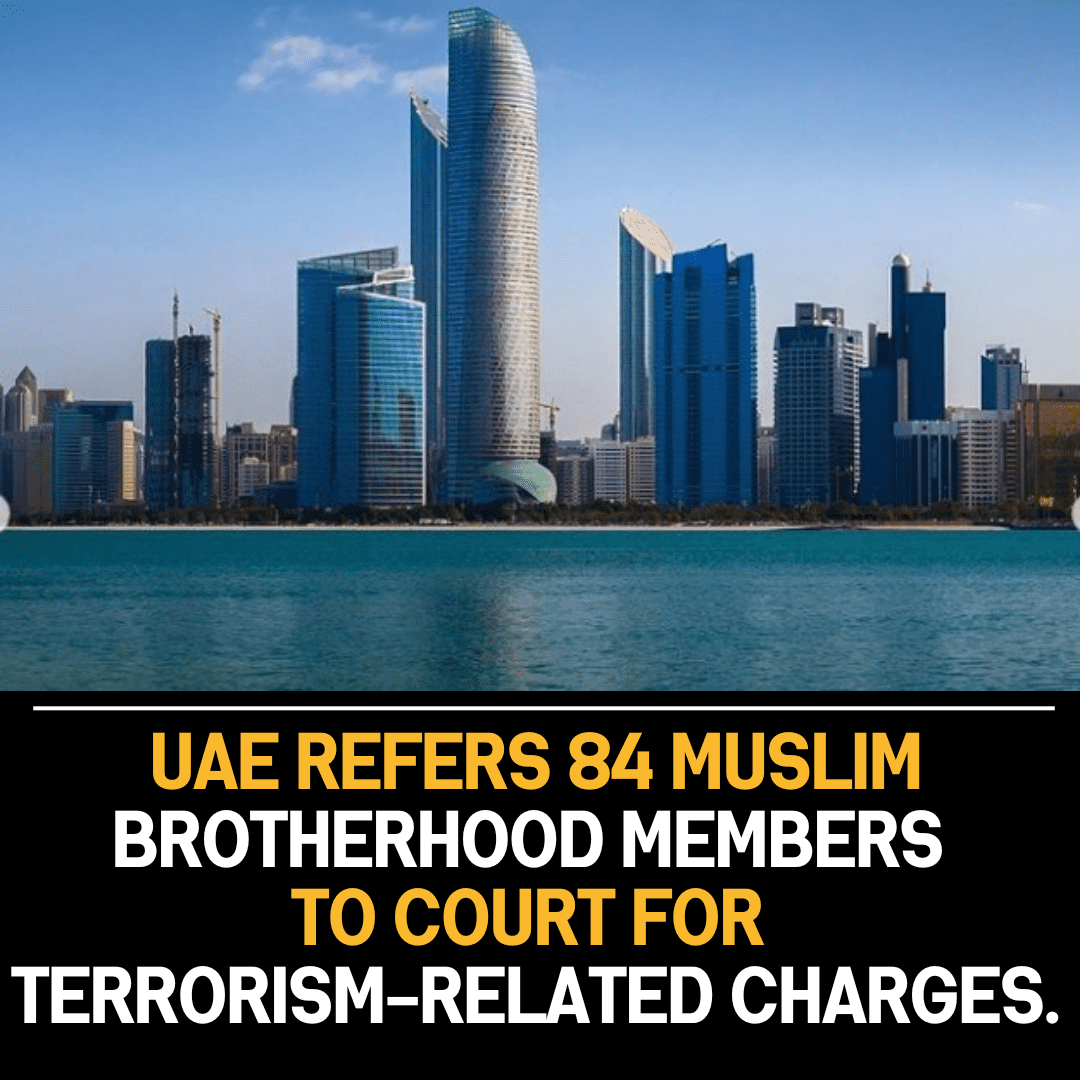In a significant development, the United Arab Emirates (UAE) has initiated legal proceedings against 84 members of the Muslim Brotherhood, bringing them to trial on charges of terrorism. The move underscores the UAE’s commitment to combating activities perceived as threats to national security and stability.
The trial targets individuals associated with the Muslim Brotherhood, a transnational Islamic organization that has faced scrutiny in various countries for its alleged involvement in political unrest and links to extremist ideologies. The UAE’s decision to bring 84 members to trial reflects a proactive stance in addressing potential threats posed by the organization within its borders.
The charges leveled against the accused include terrorism-related offenses, signaling the seriousness with which the UAE views the activities of the Muslim Brotherhood. The government aims to demonstrate a firm commitment to maintaining security and thwarting any actions that could jeopardize the nation’s stability.
The legal proceedings are expected to shed light on the specific allegations against the accused individuals, offering insights into the nature of their alleged involvement in activities deemed as terrorism. The trial process will likely be closely monitored, both domestically and internationally, as it unfolds.
The UAE’s move against the Muslim Brotherhood aligns with broader regional and global efforts to counter extremist ideologies and organizations. Many countries in the Middle East have taken measures to address the perceived threats posed by the group, viewing it as a potential destabilizing force.
International reactions to the trial are anticipated, with human rights organizations and diplomatic entities likely to closely scrutinize the legal proceedings. The case could prompt discussions on the balance between national security concerns and the protection of individual rights, as well as broader considerations related to political Islam and its role in various societies.
The trial also reflects the UAE’s approach to addressing potential internal threats through legal channels. By bringing the accused members of the Muslim Brotherhood to trial, the government aims to demonstrate its commitment to the rule of law and due process, underscoring the significance of addressing such issues within established legal frameworks.
As the legal proceedings unfold, the trial of the 84 Muslim Brotherhood members will likely continue to draw attention, contributing to ongoing discussions about counterterrorism strategies, regional stability, and the intersection between security measures and individual rights in the context of political and religious ideologies.









